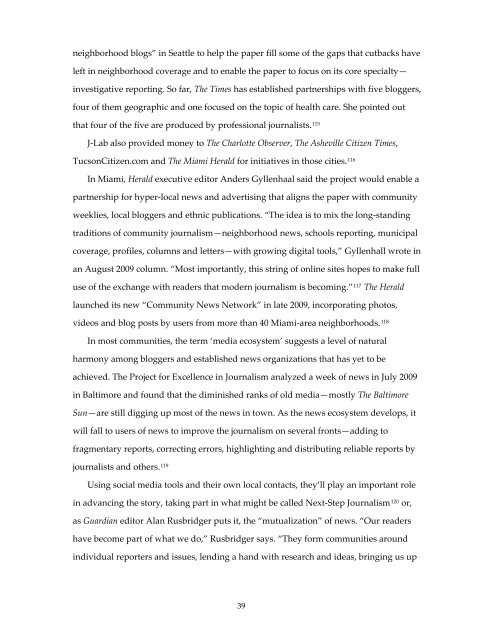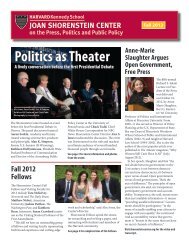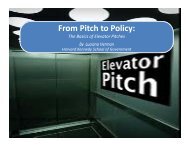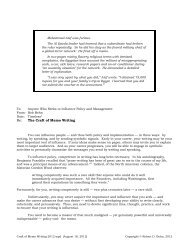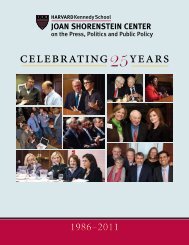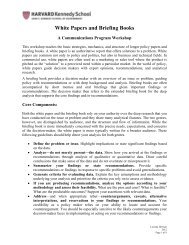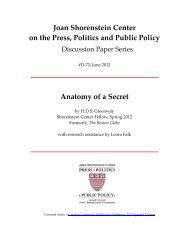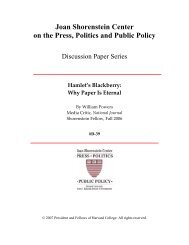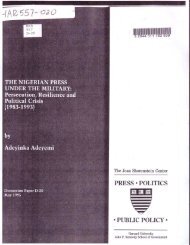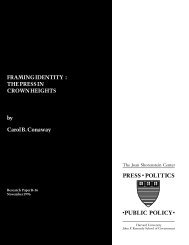A User-First Framework for Sustaining Local News - Harvard ...
A User-First Framework for Sustaining Local News - Harvard ...
A User-First Framework for Sustaining Local News - Harvard ...
You also want an ePaper? Increase the reach of your titles
YUMPU automatically turns print PDFs into web optimized ePapers that Google loves.
neighborhood blogs” in Seattle to help the paper fill some of the gaps that cutbacks have<br />
left in neighborhood coverage and to enable the paper to focus on its core specialty—<br />
investigative reporting. So far, The Times has established partnerships with five bloggers,<br />
four of them geographic and one focused on the topic of health care. She pointed out<br />
that four of the five are produced by professional journalists. 115<br />
J‐Lab also provided money to The Charlotte Observer, The Asheville Citizen Times,<br />
TucsonCitizen.com and The Miami Herald <strong>for</strong> initiatives in those cities. 116<br />
In Miami, Herald executive editor Anders Gyllenhaal said the project would enable a<br />
partnership <strong>for</strong> hyper‐local news and advertising that aligns the paper with community<br />
weeklies, local bloggers and ethnic publications. “The idea is to mix the long‐standing<br />
traditions of community journalism—neighborhood news, schools reporting, municipal<br />
coverage, profiles, columns and letters—with growing digital tools,” Gyllenhall wrote in<br />
an August 2009 column. “Most importantly, this string of online sites hopes to make full<br />
use of the exchange with readers that modern journalism is becoming.” 117 The Herald<br />
launched its new “Community <strong>News</strong> Network” in late 2009, incorporating photos,<br />
videos and blog posts by users from more than 40 Miami‐area neighborhoods. 118<br />
In most communities, the term ‘media ecosystem’ suggests a level of natural<br />
harmony among bloggers and established news organizations that has yet to be<br />
achieved. The Project <strong>for</strong> Excellence in Journalism analyzed a week of news in July 2009<br />
in Baltimore and found that the diminished ranks of old media—mostly The Baltimore<br />
Sun—are still digging up most of the news in town. As the news ecosystem develops, it<br />
will fall to users of news to improve the journalism on several fronts—adding to<br />
fragmentary reports, correcting errors, highlighting and distributing reliable reports by<br />
journalists and others. 119<br />
Using social media tools and their own local contacts, they’ll play an important role<br />
in advancing the story, taking part in what might be called Next‐Step Journalism 120 or,<br />
as Guardian editor Alan Rusbridger puts it, the “mutualization” of news. “Our readers<br />
have become part of what we do,” Rusbridger says. “They <strong>for</strong>m communities around<br />
individual reporters and issues, lending a hand with research and ideas, bringing us up<br />
39


